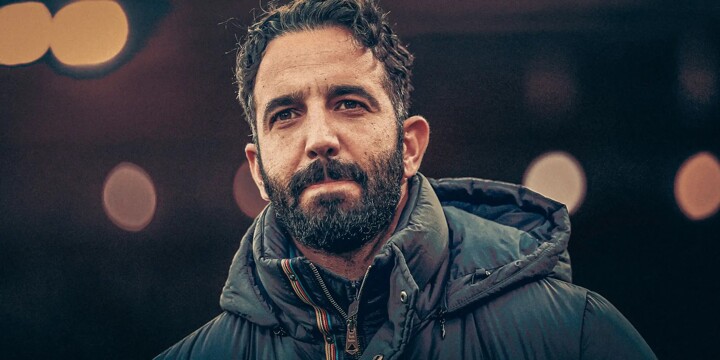November 11 marks a year since Ruben Amorim touched down in England and headed to Carrington for his first day as Manchester United head coach.

It has been a tumultuous 12 months since, with several lows, some highs, and a recent glimmer of hope, but then again the atmosphere at the club he inherited was already turbulent.
Take, for instance, one episode, not reported before, of the dressing room in the immediate aftermath of United’s 3-3 draw away to Porto in the Europa League last October 3, when Erik ten Hag was still in charge.
Ten Hag was furious at a sloppy defensive display that saw United let a 2-0 lead slip, with defeat seeming inevitable, only for Harry Maguire to salvage a 3-3 draw by scoring in injury time. After the final whistle, concerned by United’s general form, Ten Hag let rip at his players in the bowels of the Estadio do Dragao, pressing home how they needed to change mentality and be disciplined on the pitch to find success. It was a long inquest.
When he had finished, senior members of the team, including Bruno Fernandes, stood up and requested Ten Hag and his assistants leave the dressing room so the players could have a debrief themselves. This was not that unusual. A similar episode came after the 2-0 loss to Newcastle United in April 2023, with Lisandro Martinez also vocal then. United, who had slipped after lifting the Carabao Cup, went on to win the next three Premier League games on the way to qualifying for the Champions League by finishing third.
Anybody thinking Amorim would apply a lighter touch than Ten Hag was mistaken, however. The man who Cristiano Ronaldo once nicknamed The Poet can mix colourful imagery with brutal assessments. That much has been apparent in his press conferences, but behind closed doors, his honesty is sharper still.
Manuel Ugarte played for Amorim at Sporting between 2021 and 2023, but he was not given special treatment during the end-of-season meeting at Carrington that followed United’s Europa League final loss to Tottenham Hotspur. This was the gathering, the day before United faced Aston Villa in the final Premier League game, where Amorim told Alejandro Garnacho he would need a good agent during the summer window due to him remaining as head coach. That conflict was what attracted the headlines when details emerged.
Several players were on the receiving end, too, but Amorim had particularly pointed feedback for Ugarte, who he felt had let his work rate slide from their time together at Sporting. Amorim believed Ugarte had gotten comfortable and said he did not recognise him as the same player from their first stint together.
Criticising a former player in front of his team-mates certainly caused a ripple of reaction among those in the squad. It also showed them that Amorim was hard, but broadly fair, when it came to assessing application.
For those with longer memories, it called to mind how Sir Alex Ferguson would occasionally go after Ryan Giggs, who could withstand the invective, knowing that Nani, a less robust figure yet the real target, would also listen in and receive the message.
Amorim’s preference for delivering strong feedback in group settings, rather than one-on-one, has been the cause of conversations among players. The subject came up on United’s post-season tour, as several took the chance to chew the fat on the rooftop of the W Hotel in Kuala Lumpur. Some players would like more tailored instructions. Amorim wants those on the fringes of selection to show him they deserve minutes in training sessions, rather than through face-to-face meetings.
Work was done in the transfer market to effect change to this end, and bringing in Bryan Mbeumo and Matheus Cunha — two established Premier League players with a love for football — lifted the mood and the quality of sessions significantly.
Amorim’s appointment of a six-man leadership group, featuring Fernandes, Maguire, Tom Heaton, Lisandro Martinez, Noussair Mazraoui and Dalot, was an effort to entrust the dressing room with disciplinary and other matters.
At the heart of Amorim’s tenure has, of course, been his switch in formation to a back three. United hired him in full knowledge he would use a 3-4-2-1 system, but that recalibration is still being worked through at Carrington.
Although Amorim would stand at a distance when the cameras rolled for 15-minute open sessions ahead of Europa League ties last season, he often manhandled his players into position when the real coaching got under way. He still does now.
People familiar with Amorim’s thinking feel he believes his staff communicate very well and there is a good distribution of responsibilities between them. He sees them as a huge part of his success as a coach, which is why he included them in the photograph of him winning Premier League manager of the month for October.
